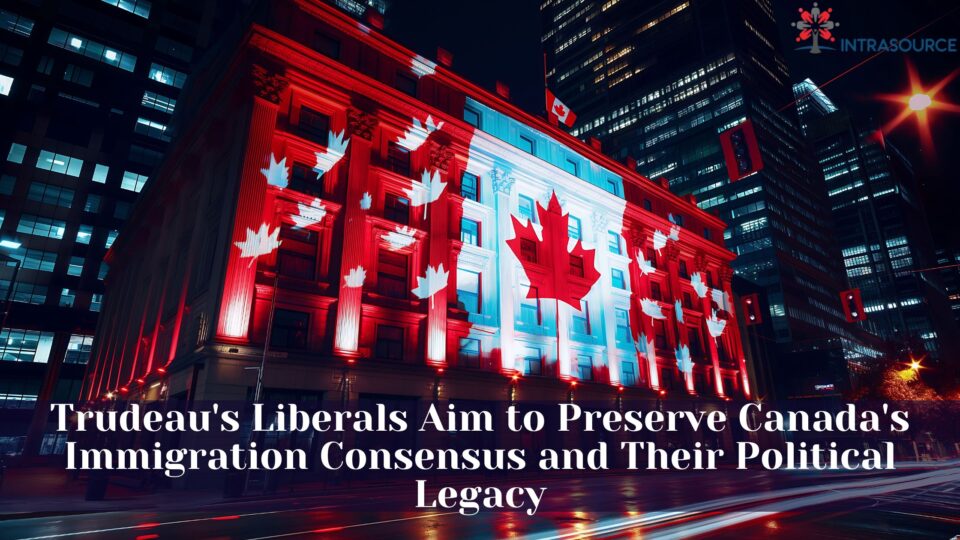A Shift in Canadian Attitudes Toward Immigration
Recent polling data indicates a noticeable shift in Canadian attitudes towards immigration, which could impact the legacy of Trudeau’s Liberal government. For decades, Canadians largely disagreed with the notion that there is excessive immigration in the country. However, polling conducted by the Environics Institute reveals a changing sentiment.
Historically, since the late 1990s, a majority of Canadians opposed the idea that Canada’s immigration levels were too high. Notably, in 2022, a significant 69% disagreed with this assertion, while only 27% concurred. However, as of 2023, these numbers have changed dramatically — now only 51% disagree and 44% agree that immigration levels are excessive.
The Implications of Changing Opinions
The latest data suggests an even further shift; currently, 58% believe there is too much immigration compared to just 36% who don’t. This transformation in opinion may present challenges for both public perception and government policy.
Economic Impact of Immigration Still Recognized
Despite these concerns about immigration levels, a majority of Canadians continue to acknowledge its benefits. Approximately 68% agree that immigration has a positive economic impact. Although this is a decrease from previous years — down by 15 points from 2022 — it remains significantly higher than the sentiment recorded in 1993.
Interestingly, among those critical of current immigration levels, just a small fraction view it as a threat to Canadian values or identity.
Preserving the Consensus Amid Shifting Views
While there are warning signs regarding Canada’s prevailing immigration consensus and potential implications for Trudeau’s legacy, key aspects of this consensus remain intact. The challenge for Trudeau’s government will be navigating these shifting opinions without undermining the fundamental support for immigrant contributions to society.
The Liberals’ Immigration Challenge
The Liberal government, led by Justin Trudeau, initially gained power with a pledge to resettle 25,000 Syrian refugees, steering away from the Conservative focus on “barbaric cultural practices” and dress codes at citizenship ceremonies. Once elected, they increased annual immigration, driven by the belief that an influx of newcomers would counterbalance an aging workforce and bolster the economy. This welcoming stance became intrinsic to their political identity and economic strategy.
Despite challenges, such as the political turbulence of Roxham Road, Canada’s acceptance of diversity and immigration remained a distinguishing feature when juxtaposed against the Trump era in the U.S. and growing anti-immigrant attitudes elsewhere.
However, over the past year, the Liberals have recognized that even beneficial policies can become excessive. In January, Marc Miller declared a new ceiling on international student permits. By August, fresh limitations were placed on the temporary foreign worker program due to an unexpected rise in non-permanent residents. Adjustments have also been made to permanent immigration plans.
The federal easing of foreign worker regulations in 2022—a move cheered by business sectors amid labor shortages post-pandemic—has now faced evaluation. Miller stresses that provinces and educational institutions are partly accountable for admitting more international students than feasible.
While increased immigration has likely shielded Canada from economic recession, Minister Miller acknowledges federal responsibility in addressing these emerging challenges. “We do have to accept the measure of responsibility that’s there,” Miller expressed during an interview this fall—a sentiment echoed in recent discussions.


